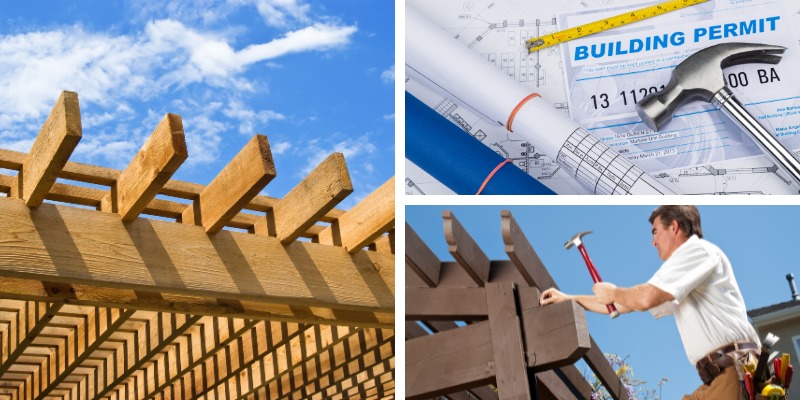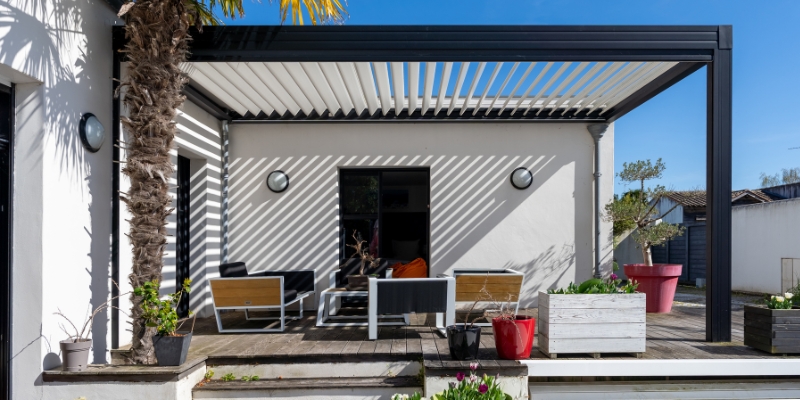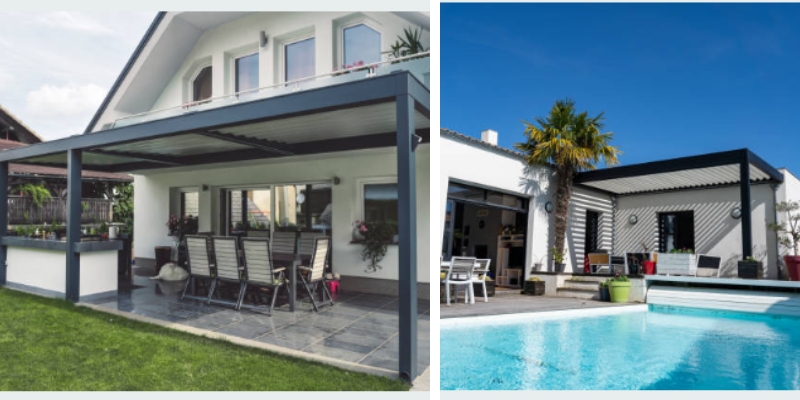The question, do you need a permit for a pergola? Isn’t mere rhetorical filler; rather, it is an imperative inquiry that demands a precise and thoughtful response.
Navigating the bureaucratic tapestry may seem like a daunting task, yet it is an essential rite of passage for any homeowner looking to enhance their outdoor living space in a manner that aligns with legal and safety standards.
In this comprehensive guide, we’ll demystify the permitting process, unravel the complexities of local regulations and building codes, and provide you with the expert insights you need to build that dream pergola while staying on the right side of the law.
So, let’s dig into the details and find out if your pergola project requires a permit and the steps to ensure a smooth and compliant construction process.

Is a Permit Necessary for a Pergola?
Yes, it is necessary to have a permit for building a pergola, if it exceeds a certain dimensional requirements. It is essential to recognize that building local codes and permits plays a crucial role in ensuring your project adheres to local building codes and regulations.
Keep in mind that pergola code requirements vary by state, county and municipality.
These permits are not mere bureaucratic hurdles; they exist to maintain safety permit requirements, uphold property aesthetics, and ensure that your pergola blends seamlessly with your outdoor space.
What Happens If You Build a Pergola Without a Permit?
While the notion of circumventing the pergola permit process may appear alluring, it is imperative to comprehend the ramifications associated with such actions. Erecting a pergola without the requisite permits can give rise to a myriad of complications.
It may culminate in the imposition of fines and penalties by your municipal government or building authority. These financial penalties have the potential to swiftly accrue, manifesting as a substantial fiscal encumbrance.
Can I Get a Retroactive Permit for a Pergola?
If you’ve already built a pergola without obtaining the necessary permit, all hope is not lost. In some cases, you may be able to apply for a retroactive permit.
However, this can be a complicated and potentially costly process. It often involves additional fees and inspections to ensure that your pergola complies with local building codes.
The best approach is always to seek the correct permits before breaking ground on your pergola project to avoid unnecessary headaches and expenses down the line.
What are the Benefits of Getting a Permit?
When embarking upon the construction of a pergola intended for use as a freestanding structure, patio cover or outdoor kitchen, it is highly advisable to meticulously adhere to the prescribed permitting process. This approach offers a multitude of compelling advantages and merits careful consideration.
Here are five key benefits to consider:
- Safety and Structural Integrity: Building permits serve as a pivotal safeguard to guarantee that permanent structures are erected with paramount attention to safety and structural soundness. In the context of a pergola, acquiring a building permit not only safeguards the well-being of you and your household but also underscores the importance of upholding the durability and reliability of your outdoor living area.
- Smooth Construction Process: Obtaining the correct permits can help streamline your construction project. It provides a clear roadmap, reducing the risk of delays or unexpected obstacles during your pergola build.
- Legal Compliance: Building without the required permits can result in fines, project stoppages, or even having to tear down your pergola. By obtaining the necessary permits, you stay in compliance with local laws, avoiding legal headaches down the road.
- Aesthetics and Property Value: Compliant pergola construction contributes to the overall aesthetics of your property, enhancing its visual and curb appeal. This, in turn, can increase your home’s value, making it an investment that pays off both visually and financially.
- Peace of Mind: Knowing that your pergola project is in accordance with local regulations and building codes gives you peace of mind. You can enjoy your outdoor space with confidence, knowing that it’s safe, structurally sound, and legally compliant.
What Are The Common Codes For Pergola Construction Across the United States?
When it comes to pergola construction, understanding the common codes and regulations across the United States is paramount. While specific requirements can vary by location, there are some general guidelines that apply nationally.
These codes are designed to ensure safety, structural integrity, and uniformity in pergola construction practices. To build a pergola that complies with these standards, it’s essential to grasp the following key aspects, whether you’re in California, New York, or anywhere in between:
- Zoning Laws and Local Building Codes: Most areas have zoning laws dictating the allowable size, height, and location of outdoor structures like pergolas. Familiarizing yourself with your local building departments and their requirements is the first step in code compliance.
- Building Materials: Different regions may have specific requirements for the materials used in pergola construction. Understanding what materials are approved for use can influence your design choices.
- Wind and Snow Loads: Depending on your location, your pergola may need to withstand heavy winds, snow, or other environmental factors. Building codes will specify load requirements to ensure structural integrity.
- Fire Safety: In some areas, there are fire codes that pertain to outdoor structures. These codes may influence the choice of materials and design elements.
- Historical District Aesthetic Guidelines: If your property is in a historical district, there may be additional aesthetic or pergola design guidelines to maintain the area’s historical character.
- Homeowner’s Association Rules: If you live in a community with a homeowners’ association, they may have their own set of regulations regarding pergola construction.
What is a Pergola Permit Fee?
Understanding the financial aspect of obtaining a pergola permit is essential before you embark on your construction project. Pergola permit fees can vary significantly, depending on your location and the scope of your project.
This means that the larger and more elaborate your pergola, the higher the permit fee.
It’s prudent to research your local building department or local municipality’s fee structure to budget accordingly and avoid any unexpected costs during your pergola construction journey.
Conclusion
We’ve journeyed through the intricacies of permitting processes, the importance of adhering to local regulations and building codes, and the benefits of obtaining the correct permits.
Whether you’re aiming to build a pergola for its aesthetic charm, to provide shade, or to act as your patio covers, one fact remains constant: compliance with the law ensures a smooth and secure construction experience.
Therefore, as you embark upon the endeavor of commencing your forthcoming pergola project, it is imperative to bear in mind that the objective extends beyond the creation of an aesthetically pleasing addition to your property.


